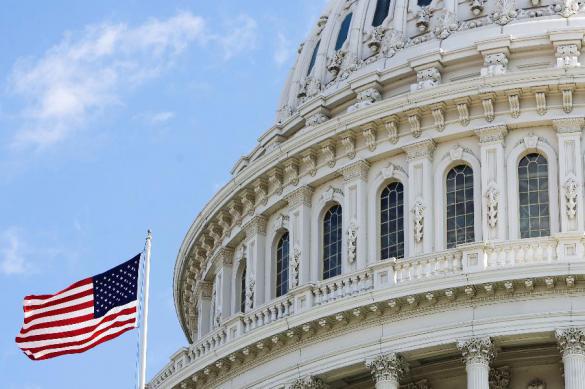Washington bites off more than it can chew, so one day it will choke on its sanctions
The response from the European Union to sanctions against Iran reduces the repressive potential of the world's gendarme. On August 7, the European Union automatically introduced "Blocking Regulations" prohibiting EU companies from executing extraterritorial sanctions of the United States imposed on Iran. In addition, the regulations prohibit the implementation of decisions that the courts of foreign countries make on the basis of those sanctions.

The EU has thus showed serious resistance to the sanctions, and their effect will decrease considerably, because the euro is a world reserve currency. All banks of the world hold up to 30 percent of their assets in euros. To make matters worse for Washington, European companies have plenty of opportunities for lending. For example, French oil giant Total has financed its Yamal-LNG project in Russia with the help of Chinese banks.
For the last several years, Washington has been expanding financial and other sectoral sanctions against Russia, Venezuela and North Korea. At the same time, the Americans threaten to impose sanctions on China for its "aggressive behavior" in the Asia-Pacific region (APR). USA's duties on imports of Chinese goods to the US totaling $250 billion come as just another form of punitive measures. In addition, China still lives under the sanctions (restricted access to high technologies - ed.) that the West imposed on the country after the crisis on the Tiananmen Square in 1989.
As for sanctions against Russia, the Americans bite off more than they can chew. Few in the United States can recollect the root cause of initial sanctions - the crash of the Malaysian Boeing over the Donbass. The 2018 "Kremlin report" from the US Treasury Ministry indicated the following reasons: interference in elections, support for Bashar Assad, non-compliance with Minsk Accords and cyberattacks.
Not that long ago, US congressmen promised to impose new sanctions on Russia, including extraterritorial restrictions on the purchase of the Russian debt (OFZ bonds), that may devalue the Russian ruble even more. Russia's largest state-owned banks and companies, including Gazprom, already have restricted access to financial resources of Western banks.
In fact, the USA has been going on an economic offensive on Russia in an effort to win the domestic political struggle before elections. If oil prices fall, Russia may face the risk of default, because Russia does not have its own emission center. Russia's economy is not a sovereign one, just like the economy of Iran.
At the same time, it is China that can make the most unpleasant surprise for the United States. Chinese officials have said before that Washington's strategic arrogance in the APR is based on nuclear superiority. Beijing finds it a good reason to accelerate the development of advanced ballistic missiles, such as Dongfeng-41, to show the whole world a firm determination to protect national interests, The Global Times wrote.
Eventually, non-dollar economies may unite to create a multipolar world. It goes about such economies as the European Union and Turkey. Will Washington have the power to overthrow the regime in Venezuela, if Russia and China help Caracas in creating its own crypto currency? Europe may also try to consolidate its presence in the Asia-Pacific Region. The trade exchange between Europe and Asia via the Trans-Siberian Railway grows at a frantic pace of 40 percent per year. China's "One Belt - One Road" project is to become the driving force for the center of power in Eurasia, where Russia will be a bridge.
Lyuba Lulko
Pravda.Ru
Read article on the Russian version of Pravda.Ru
Subscribe to Pravda.Ru Telegram channel, Facebook, RSS!



